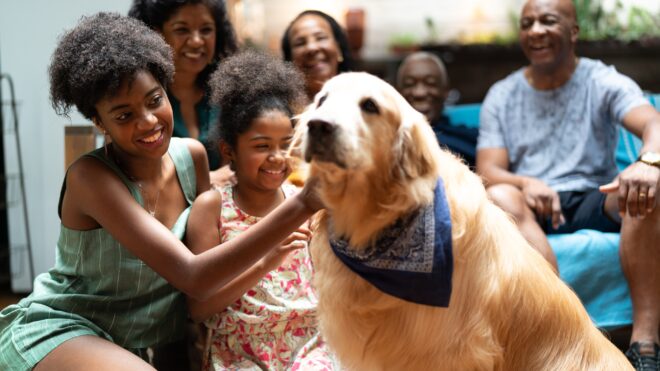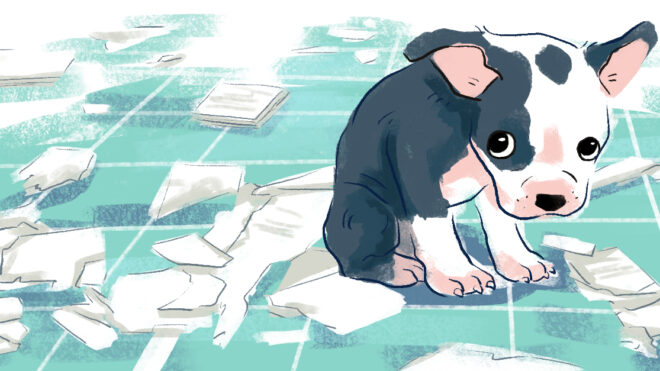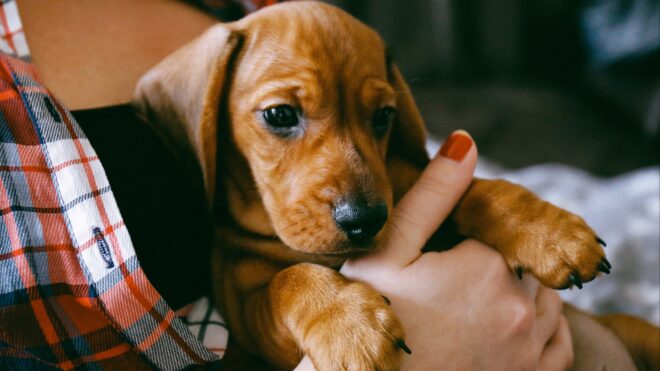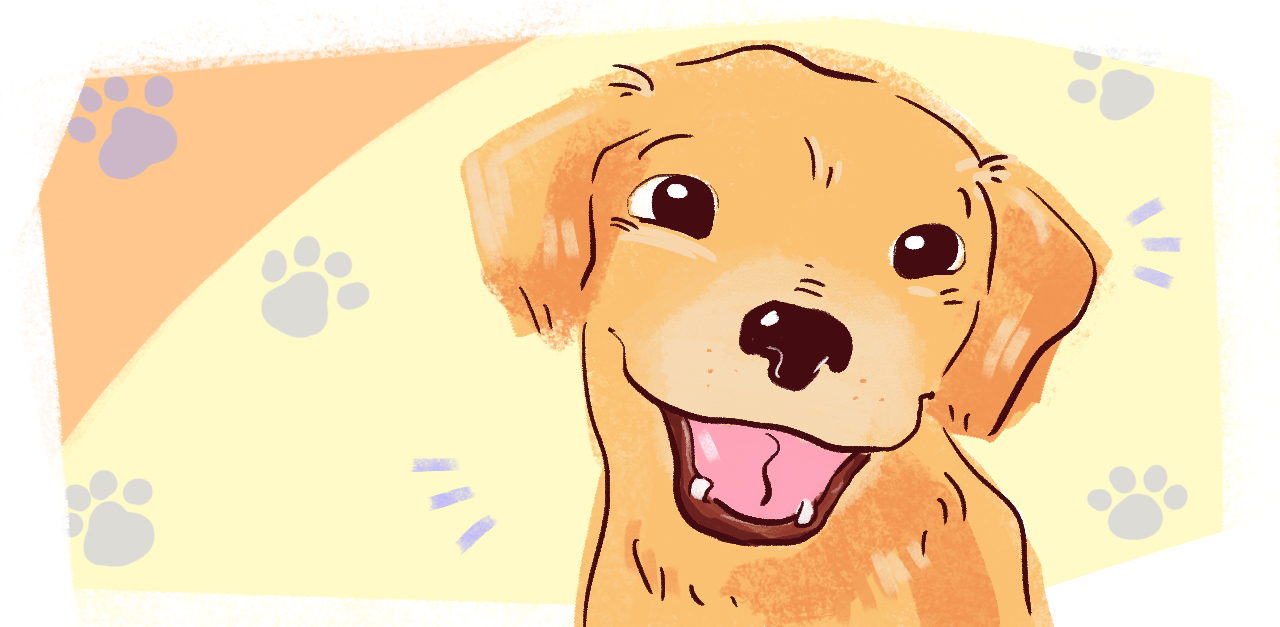
A teething puppy can be a lot of work, but every dog (and owner!) has to go through it. Puppies may be cute little creatures who spend the majority of their time playing, napping, and being incredibly loving companions to their families, but they’re also baby animals who experience a lot of the same challenges that young humans do while they’re growing up and getting bigger.
At around 12 to 16 weeks old (or 3 to 4 months), puppies begin to lose their 28 baby teeth before their 42 adult teeth start to emerge. During this time, their gums become tender and sore, which can result in all sorts of symptoms and reactive (sometimes destructive and problematic) behavior. While it can be difficult to watch your puppy be in pain while his adult teeth come in, there are a lot of things you can do to help ease the process.
To help your young dog deal with this uncomfortable and painful stage — as well as avoid any unwanted issues and outcomes — here is what you need to know to properly handle a teething puppy.
Know What You’re Dealing With
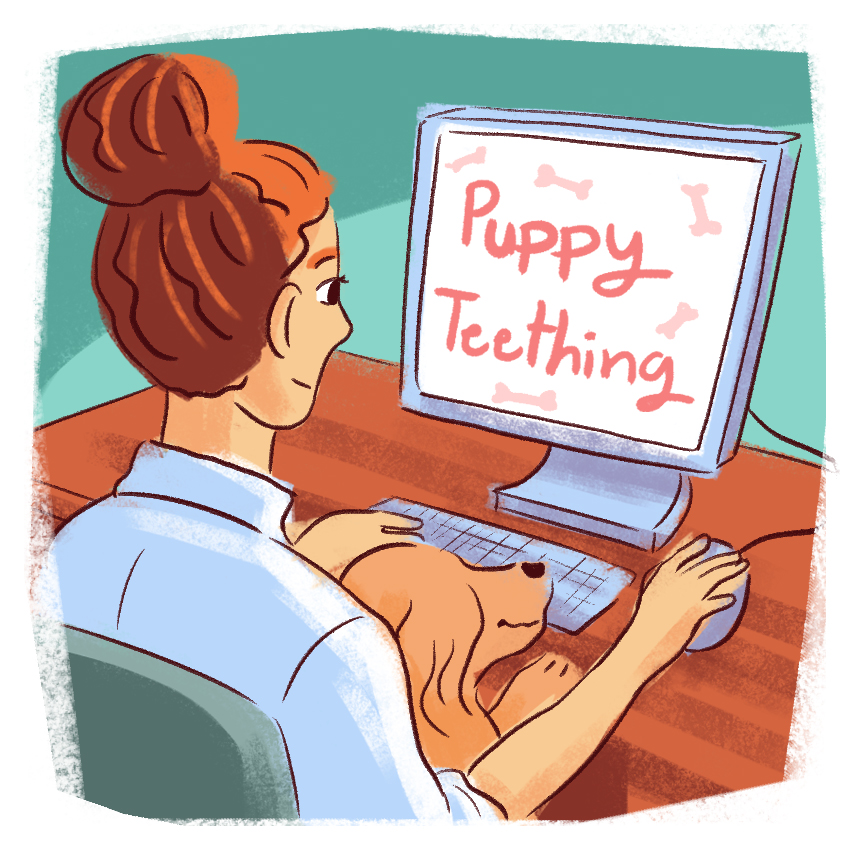
Teething will be slightly different for every puppy, but generally, the process lasts around one to three months. During that time, your pup will go through different stages, including baby teeth falling out, raw gum discomfort, and adult teeth breaking through. Each step can be confusing and uncomfortable for your little dog, but rest assured that it won’t last forever.
Recognize the Signs
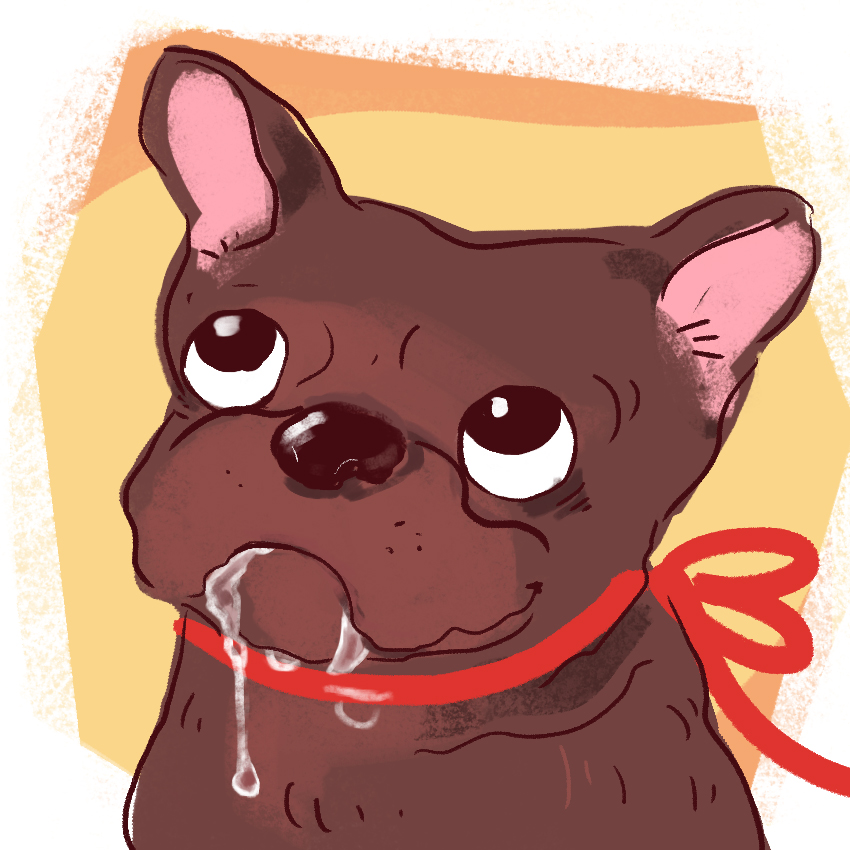
When puppies begin the teething process, they’ll likely drool and chew on anything and everything that they can get their paws on. You might even notice a few spots of blood around (especially on toys) while your pup is dealing with raw gums and missing teeth. You may also notice mood changes, and honestly, can you blame the poor pup? This is a painful and frustrating time for your pet.
Understand That Nipping Comes With the Territory
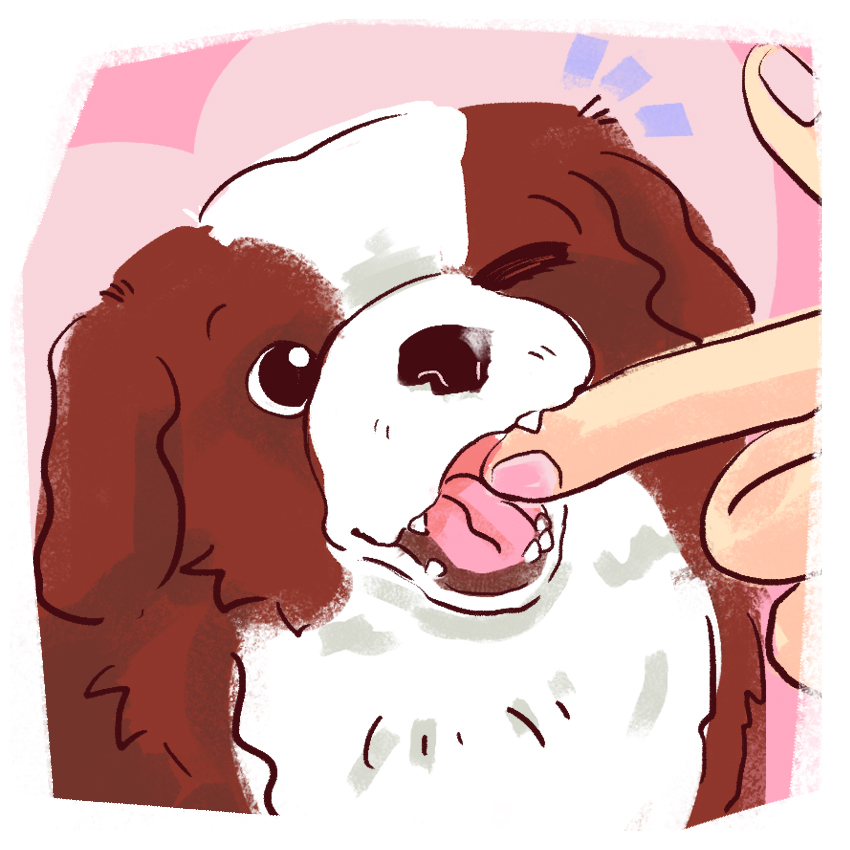
While you never want to tolerate your puppy biting people, nipping does come with the territory when puppies are teething. Along with acting out of frustration, puppies might also be trying to relieve a bit of their discomfort by gnawing on anything lying around. If your puppy does bite you, say “ow” and let him know that he's hurt you. Then calmly but firmly tell him “no” so that he knows not to nip you again.
Give Your Puppy Chew Toys
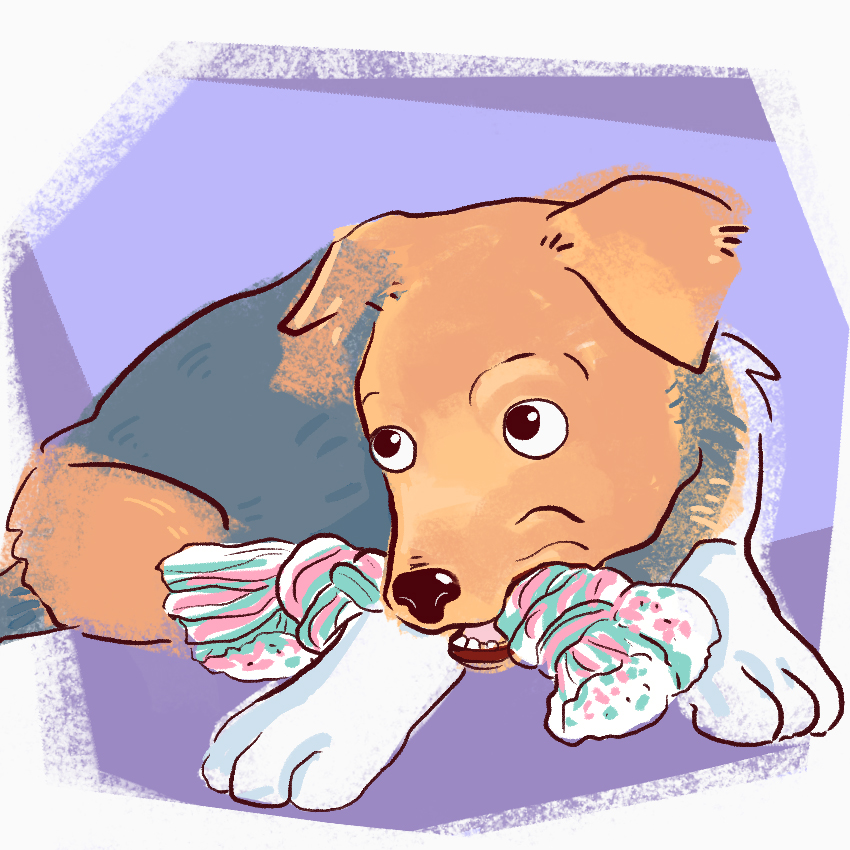
To prevent nipping and offer your puppy a bit of relief, give him a few chew toys that you don’t mind him nibbling to pieces. There are endless options available online, including bacon-flavored bones, durable rubber rollers, and plenty of rigorous ropes. Praise your puppy when he uses his toys so that he knows what he can and can’t chew on.
Remove Any Toys That Are Too Chewed Up
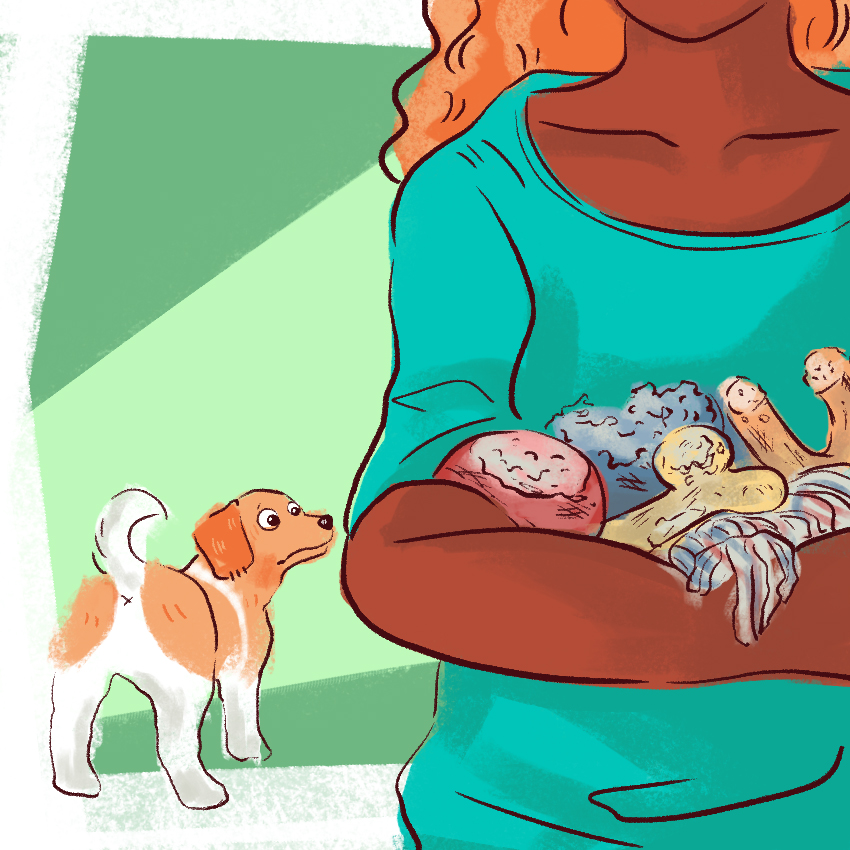
Because puppies are nibbling monsters while teething, they can chew up their toys faster than you might imagine. If this happens, be sure to remove any toys that are chewed up beyond use, and pick up any bits that have fallen off to prevent your pup from swallowing anything inedible or choking.
Remove and Protect Anything You Don’t Want Destroyed
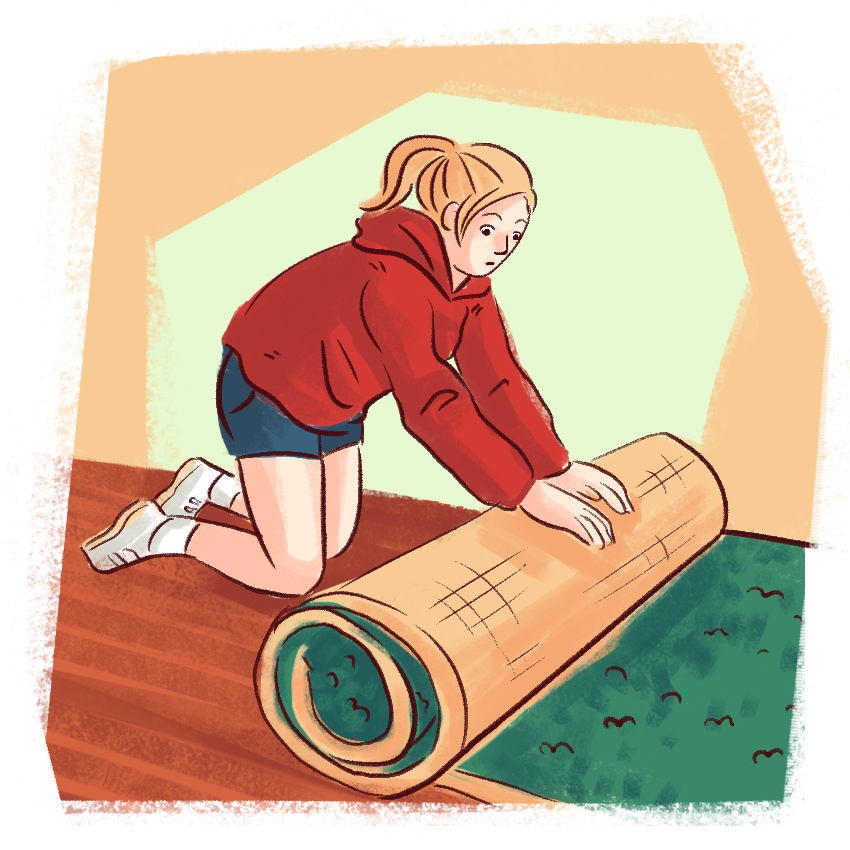
Rope-like puppy chew toys are incredibly popular, and there’s a good chance that your pup will love one. However, take a look at the tassels at the ends of the toys. Remind you of anything? If you have a rug in your home that has similar tassels, your pup might confuse the rug for a toy and think that it’s OK to chew away. To prevent your rug from being destroyed, either remove it for the time being or stay away from rope chew toys so that you don’t confuse your dog.
You’ll also want to put away any other furniture or items — shoes, socks, remotes, your phone, your purse — that you don’t want to end up as a nibbled, chewed-up mess.
Give Your Puppy Ice Cubes
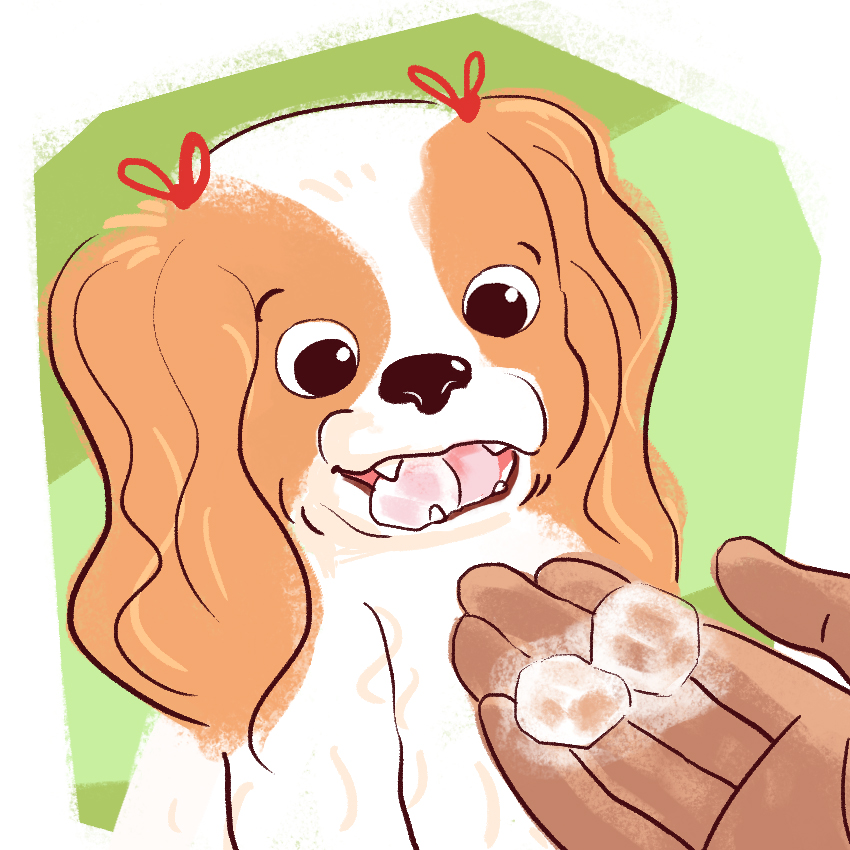
If your puppy seems to need a little relief from teething pain, but the toys appear to be irritating his sensitive gums, then try giving your pup a couple of ice cubes. Pop a few into his water bowl, and while he licks or chew the cubes, the cold will provide some temporary comfort. Just be sure to watch your dog while he has the ice and remove any sharp pieces to make sure your puppy doesn’t choke on the hard bits while chewing.
Try Frozen Carrots
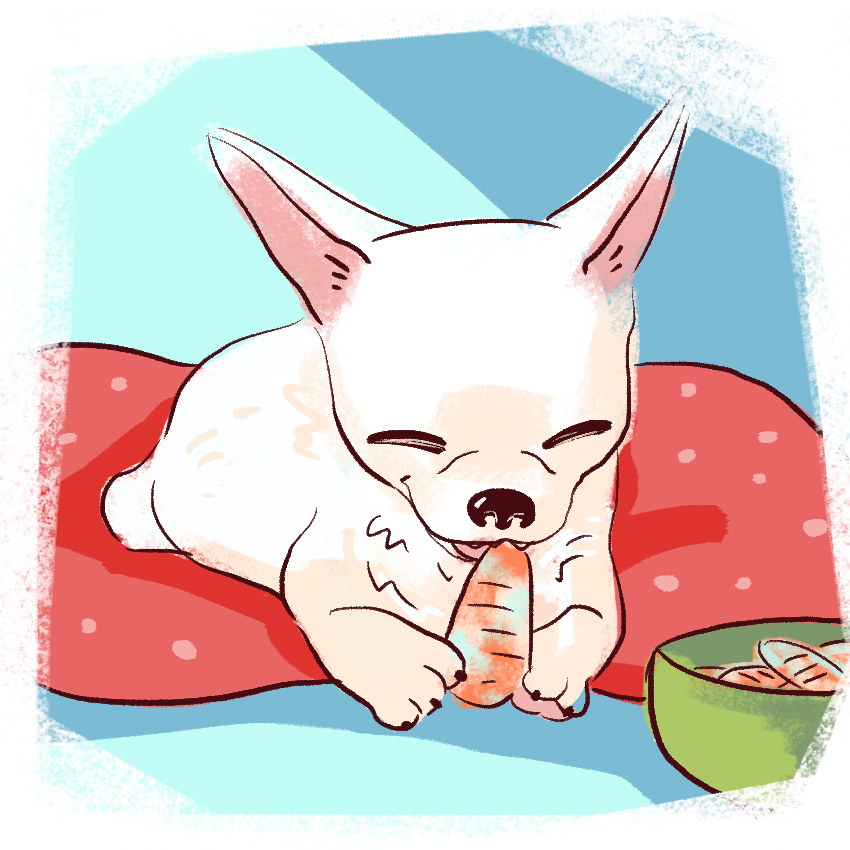
If you think something cold might help your pup, but he's not into plain ice cubes, opt for frozen carrots instead. It’s not only a healthy treat, but your pup will also appreciate the cold comfort.
Opt for Frozen Chicken or Beef Broth
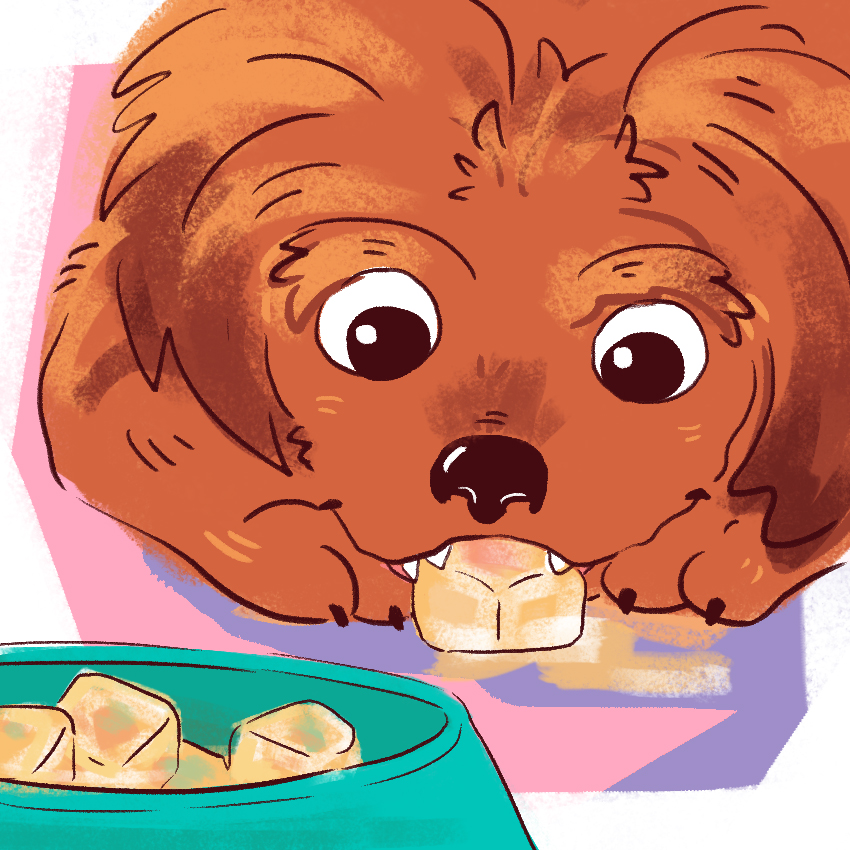
If your puppy is a little picky and you don’t think he’ll be interested in ice cubes or frozen carrots, you can also try giving him frozen broth. By opting for either a chicken or a beef flavor, you’re providing your pup with a treat that’s both tasty and soothing that he won’t be able to resist.
Herbs Are an Alternative
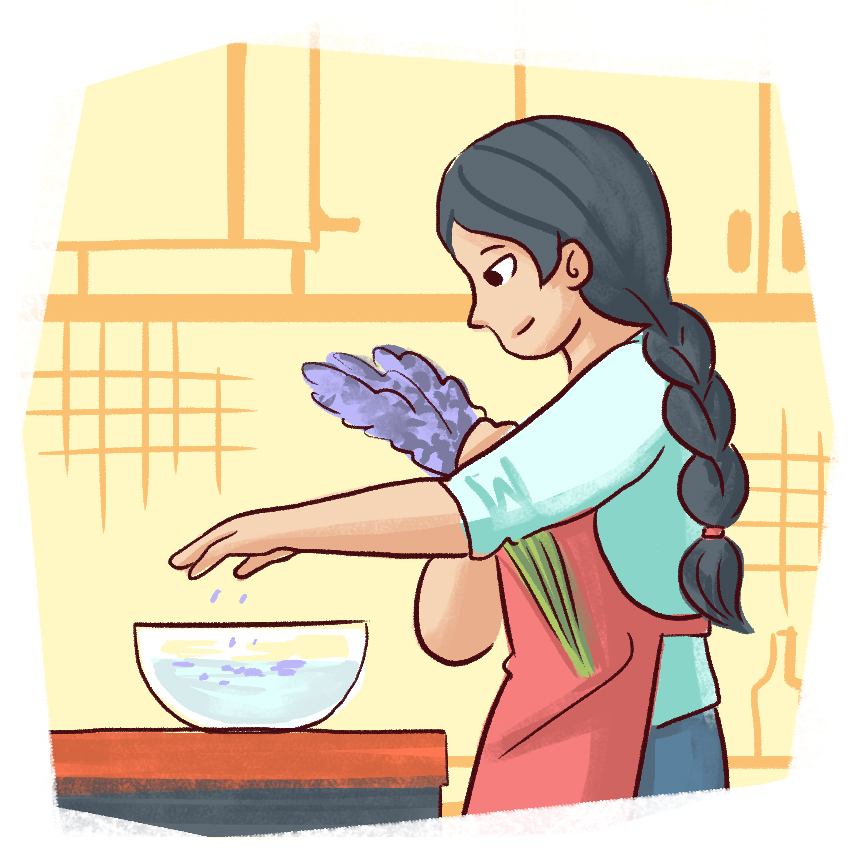
According to Natural Dog Health Remedies, frozen aloe vera juice will not only soothe your puppy’s gums with the cold but also help to numb the pain. You can also give your pup some warm (or room temperature) chamomile tea to help him calm down and relax. The Dogington Post suggests using a lavender brew.
Switch to Soft Food
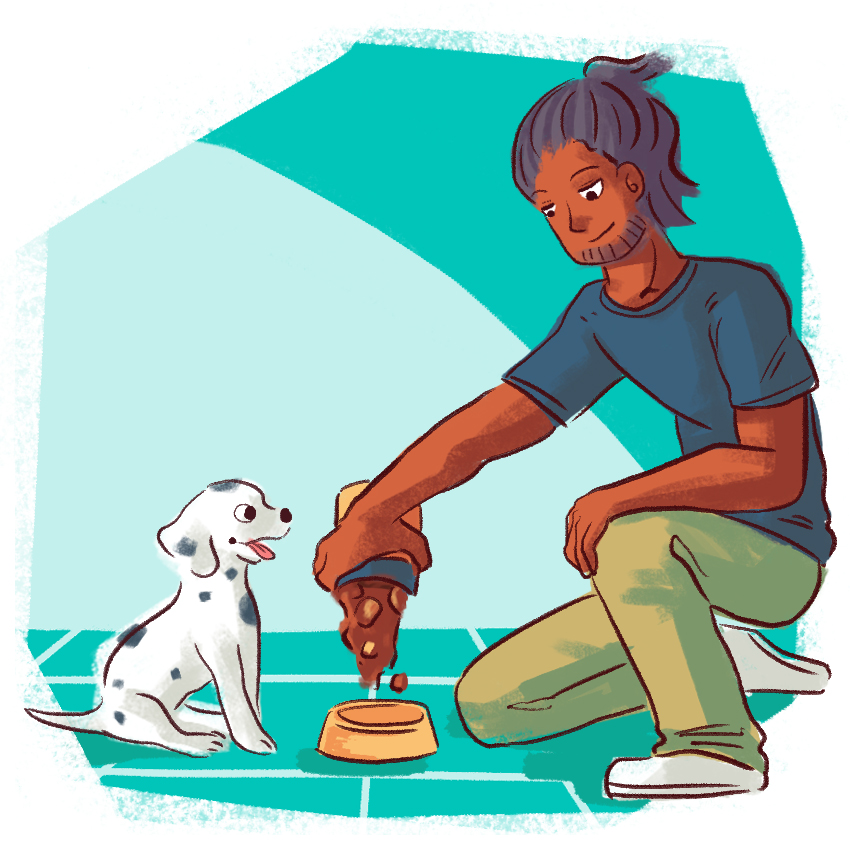
While puppies are going through the teething process, hard dry food might be too painful for them to eat. That’s why you might want to switch to soft wet food for a while. Or you can soften up your dog’s regular kibble by pouring a little water on it and letting it soak for a minute or two before serving it to your pup.
Check in With Your Vet If You Have Any Concerns or Notice Something Wrong
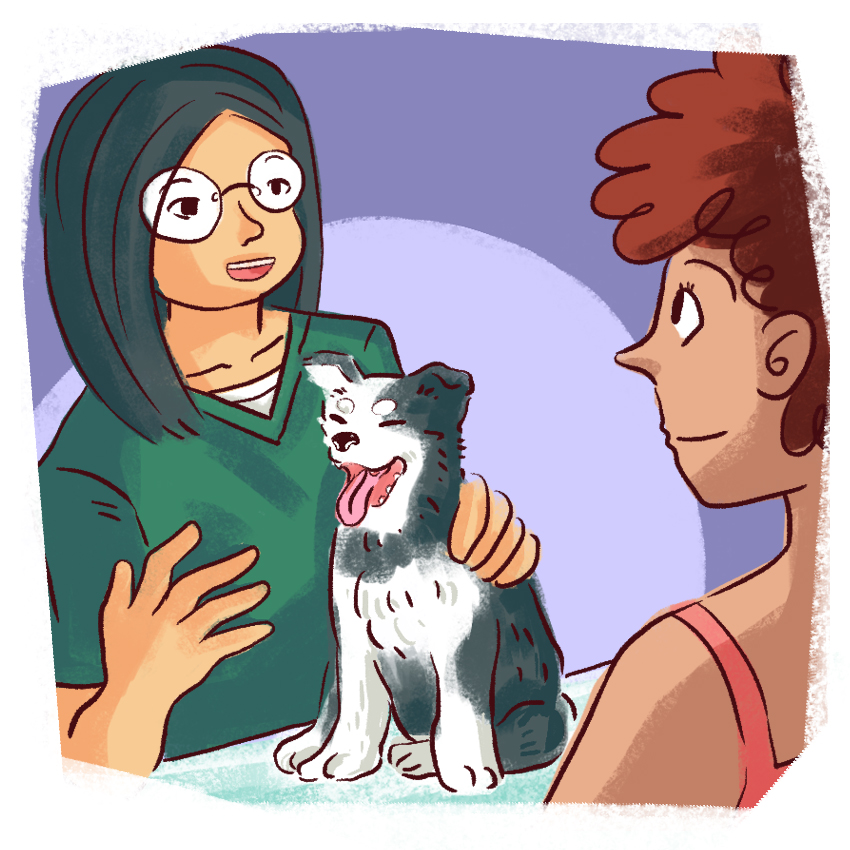
Unfortunately, it’s totally normal for puppies to experience some pain while teething, and their gums may even bleed throughout the process. You may notice your puppy eating less for a time while the adult teeth are growing in, and the nipping might leave you with a scratch or two. These things are all expected. But if you have any concerns about your puppy and the teething process, or if you’re worried that something might be wrong, be sure to check in with your vet ASAP.
Offer Plenty of Love and Affection
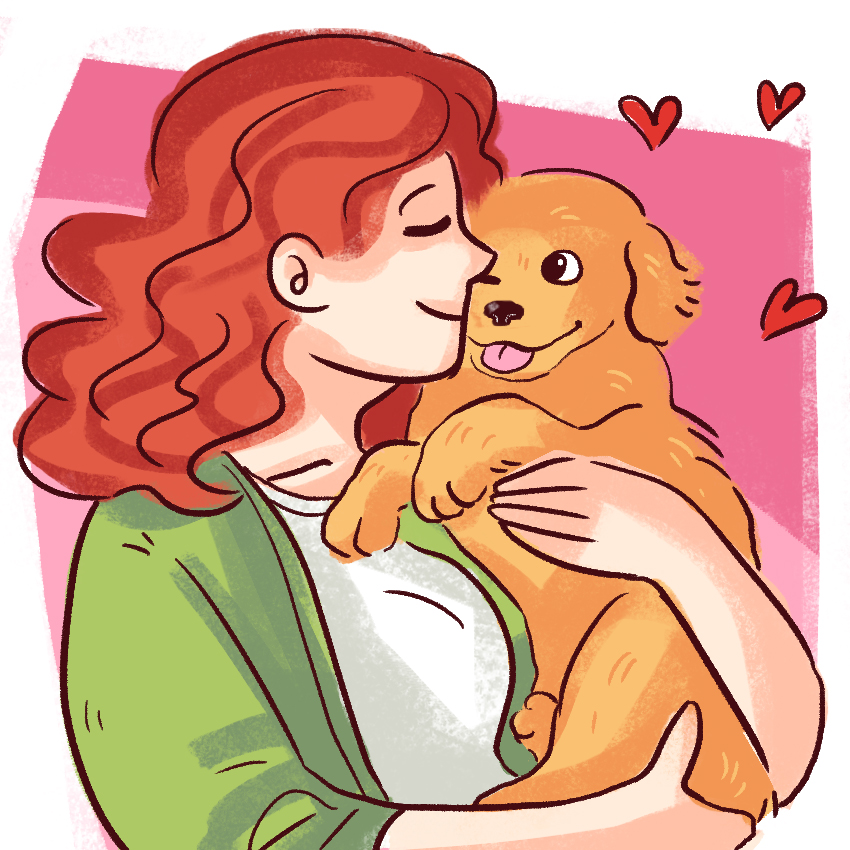
Puppies can act like little sucky-babies while they're teething, and, to be honest, there’s nothing wrong with that. We all feel icky and can use a little extra TLC when we’re in pain, so one of the best things you can offer puppies while they're teething is plenty of love and affection.
Be Patient and Understanding
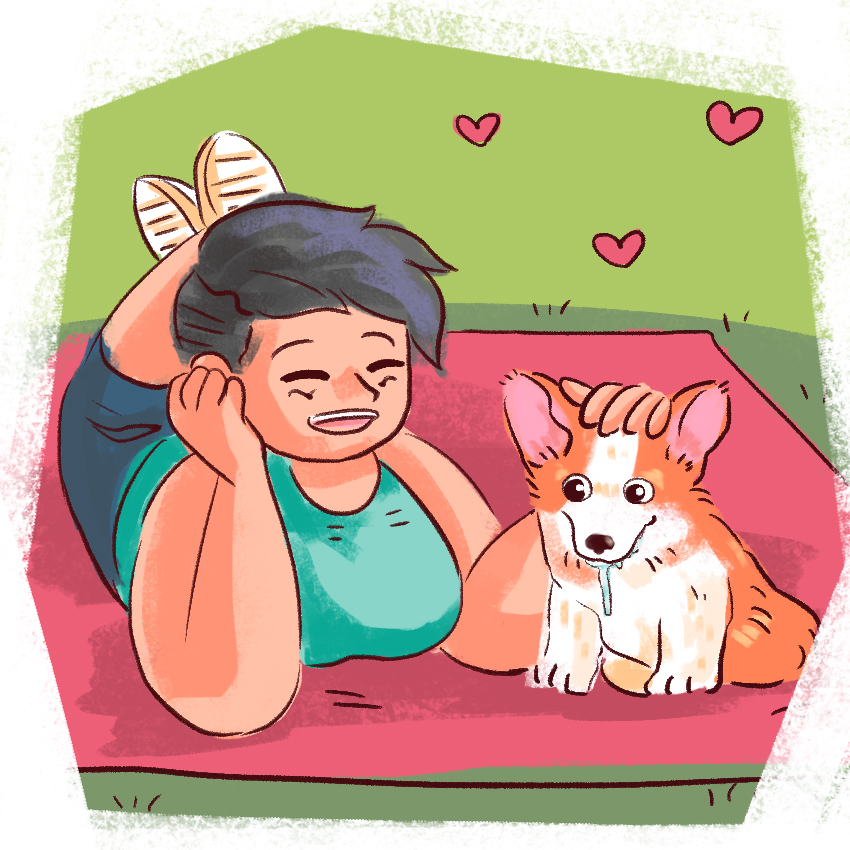
Remember that while puppies are teething, they're in pain and super uncomfortable. That means that they may act out and be hard to handle (in all of the ways we’ve mentioned above). But remember: This will pass, and in the meantime, don’t punish your pup for his inconvenient or annoying behavior. Just be patient and do your best to ease his pain until the teething process is done and he's once again back to being an adorably playful pup.

